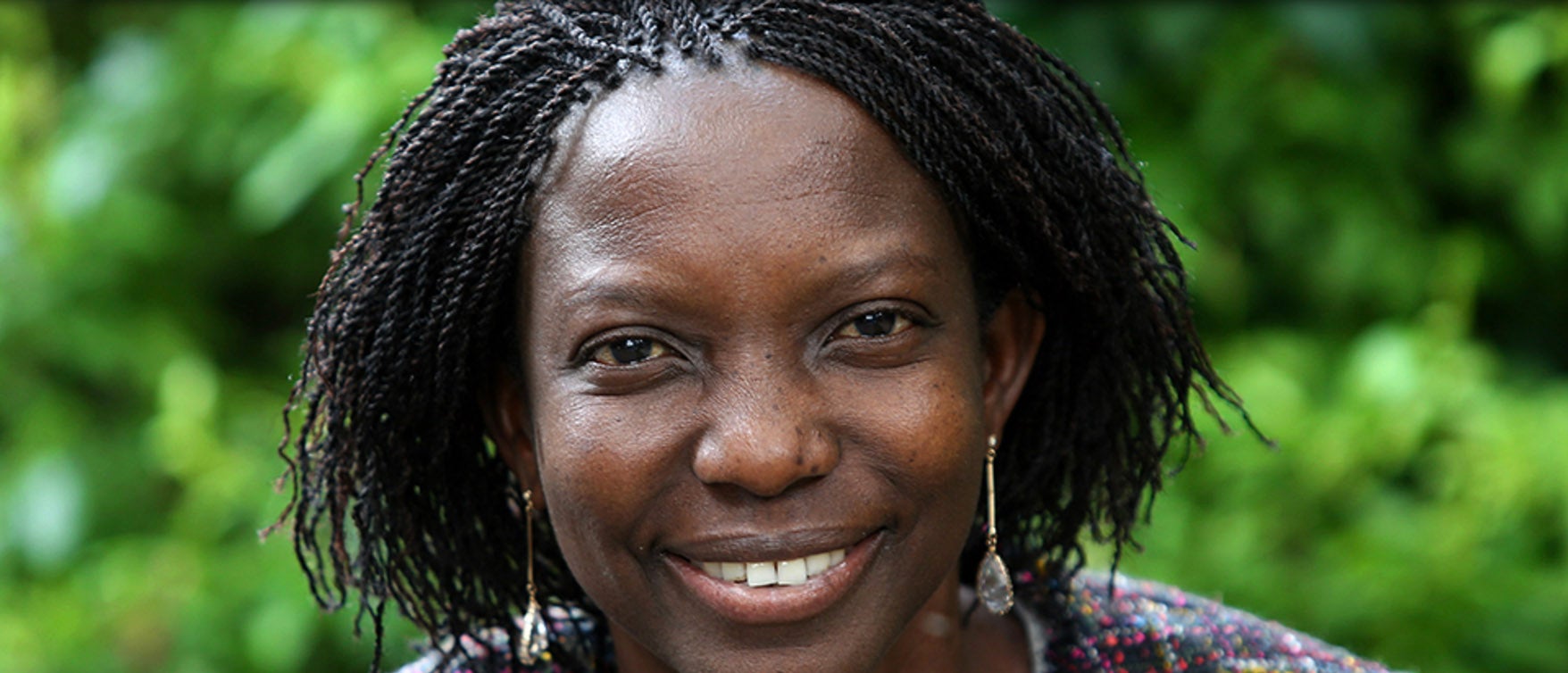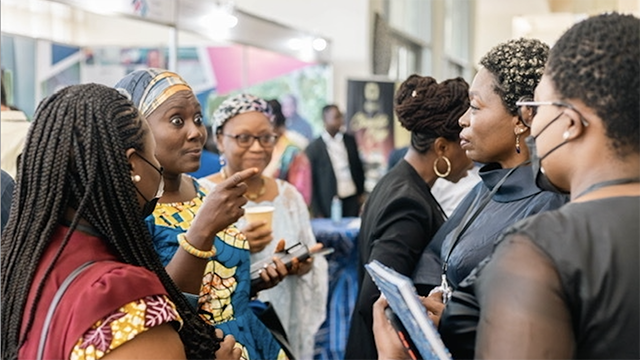
Agnes Igoye is Uganda’s deputy national coordinator for the prevention of trafficking in persons and heads Uganda’s Immigration Training Academy. She will speak as part of the Healthy Communities track at Spotlight Health. She’s a member of the 2018 Aspen New Voices Fellowship class. She was featured in a story about women leadership in the episode Make Way for These Changemakers in our podcast, Aspen Insight.
What led you to work on eradicating human trafficking?
Do you have time?! There are certain things that happen to us human beings when we’re growing up, and some of those things remain ingrained in us. In a life’s journey, how do you view your purpose? I tell people, ‘Don’t look any farther. It’s in your environment, your background, and it’s in you — just listen to yourself.’ For me, it started when the Lord’s Resistance Army attacked my village in rural Uganda. I remember we were playing when the rebels and commanders arrived. The whole village started running, but my father refused to leave. We saw the commanders dragging my cousin away. Her mother had dressed her in clothing worn by married women because the rebels were looking for virgins and young unmarried girls. To try and save his sister, my cousin’s brother came forward and lied to the commanders saying, ‘This is my wife.’ After seeing that, my father realized his family of six girls and two boys was not safe. So we fled, running in different directions. Following the crowd, you didn’t know where you were going or how long you’d be running. We ended up in an internally displaced peoples’ camp at a Catholic mission.
I also entered a career of countering trafficking simply because I was born a girl. In my village, people didn’t celebrate the birth of a girl. As a girl, you weren’t worth an education, you were useless, and seen as a burden to your family. My parents, who were both teachers, defied the status quo, which helped. My father encouraged his daughters to go to school. I remember when my sister was in school and the teachers refused to teach her math. They thought it was a waste — that math was only for boys and she would fail the subject. My father went to the school and reminded them that she was the one doing the studying and they should stay out of it. My sister went on to study math in college. So, my childhood was spent in a depressing environment, but I had parents who cared. Witnessing the attack of the Lord’s Resistance Army and growing up a girl informed my interests into trafficking.
You built a rehabilitation center in Kampala for survivors of human trafficking. Tell me about the people who seek services here.
I remember a survivor of human trafficking waking me up at midnight. She had taken down my phone number after seeing an awareness campaign on television. This girl was circumcised and married off when she was still a child. When she eventually left her abusive marriage, her parents were furious because she had brought shame to the family. The night she called me, her mother had beaten her badly. When I responded to her call, I told her to ‘just look for any gas station and tell me where it is.’ That’s how I located her and picked her up. By the time my mother and sister woke up in the morning there was a stranger in the house (laughs). But they were kind of used to that! We tried to make her feel comfortable, but she felt she was invading our space and was fearful of the repercussions of running away. I searched and searched for a center that could help her, but before I could find one, she left. That really broke my heart and that’s how I gained the determination to build a center for survivors.
Who are your role models?
My parents. I was born in 1972 and many of the kids I grew up with have died. Many others are grandmothers because it was common to be married off at 18 years old. When I was 10 years old, boys and men called me ‘prostitute.’ I asked my mother, ‘What does this mean? Why are people giving me another name?’ When my mother finally told me what it meant, I told her, ‘I’m going to really, really work hard and embarrass these men by succeeding in life.’ It was so important to have parents who told us we can be whoever we wanted. I remember in my home we used to have debates — sugar is better than salt: discuss. And it was serious! So, you’d debate, learn how to lose, and cry. They encouraged us to learn all the time.
How can female leaders encourage other female leaders to strive for positions of influence?
First of all, you have to lead by example. People have to see how you conduct yourself and the decisions you make. And, women must step forward. In a society like mine there are ingrained traditions and stereotypes that, if gone unquestioned, are considered normal. To change the status quo, you must constantly bring up the issue. In my job as Deputy National Coordinator for the Prevention of Trafficking in Persons, I remember sitting on a roundtable with some of Uganda’s leaders. They were passing around a list that included only men’s names. The people listed planned to travel to hard to reach areas for a registration effort. I asked why there weren’t any women listed, and they responded that they were doing us a favor by keeping us out of these dangerous places. This is where leadership comes in — by asking questions. Where can’t women go? Women carry a baby for 9 months and you push it out — what is more difficult than that?! You have to bring such situations to the attention of the men, and other women see that the ‘norm’ shouldn’t be the norm.
The views and opinions of the author are her own and do not necessarily reflect those of the Aspen Institute. This post originally appeared on the Aspen Ideas Festival site.


